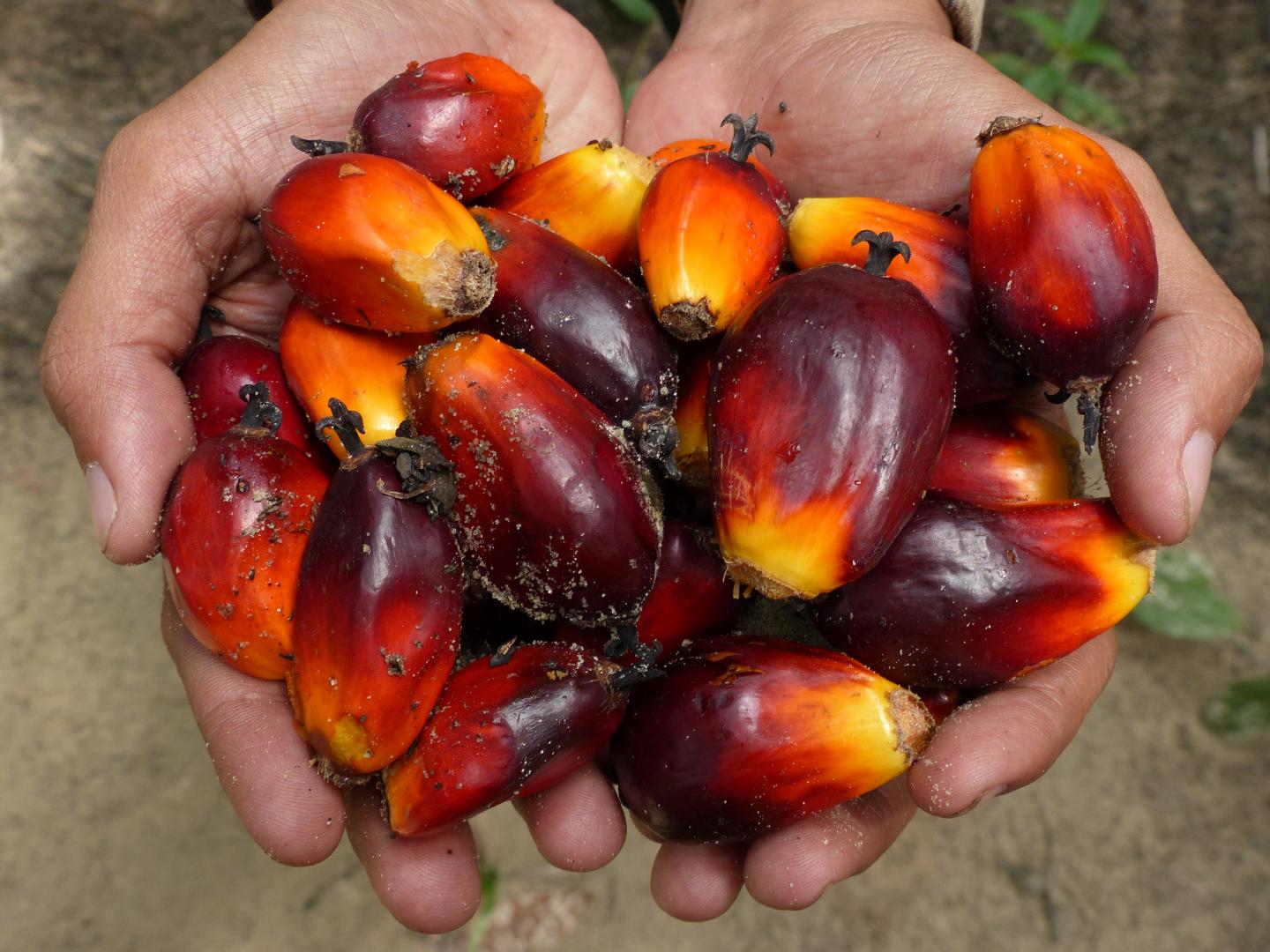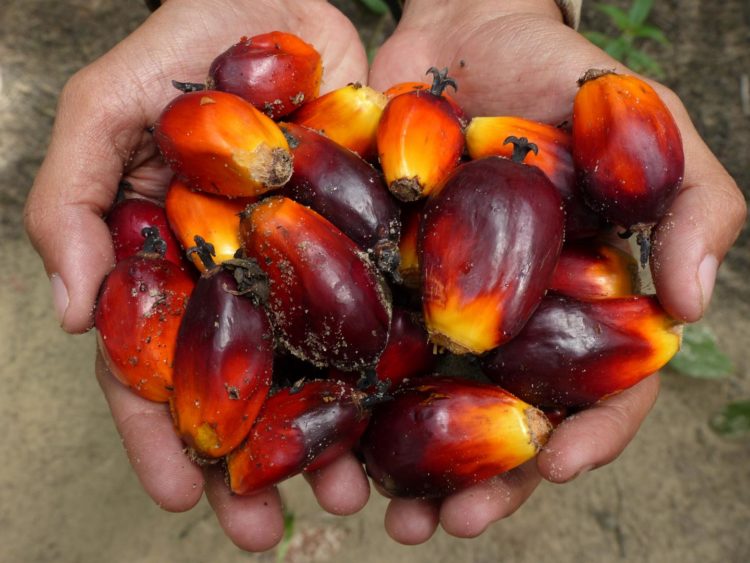International team led by the University of Göttingen investigates environmentally sustainable palm oil production

Credit: Katja Rembold
Environmentally friendlier palm oil production could be achieved with less fertilizer and no herbicide, while maintaining profits. These are the encouraging preliminary results of the first two years of a large-scale oil palm management experiment by an international team of researchers led by the University of Göttingen. The research was published in Frontiers in Forests and Global Change.
The palm oil industry often hits the headlines with news about the destruction of tropical forests and the plight of orangutans. Yet palm oil continues to represent a considerable proportion of the Gross Domestic Product of many tropical countries; and large numbers of people, including smallholder farmers, depend on it. In addition, a multitude of products that we use on a daily basis would be more expensive without affordable palm oil. Together with industry partners, the WWF (World Wide Fund for Nature) established the Roundtable for Sustainable Palm Oil in 2004. However, concrete recommendations on the levels of herbicides or fertilizer and the management practices are still missing. There hasn’t been enough research, meaning that oil palm growers were hesitant to adopt alternative management strategies that could reduce their yields a few years later.
In 2016, the German-Indonesian Collaborative Research Centre “Ecological and Socioeconomic Functions of Tropical Lowland Rainforest Transformation Systems (EFForTS)” set up an experiment in an oil palm company estate in Jambi province, Sumatra, in collaboration with the Indonesian national company PTPN6. Fertiliser input was set to one of two levels: either low, compensating for the nutrients that are removed by the harvest; or high, corresponding to the industry standard for fertiliser-usage, which is roughly twice as high. Weed control was performed either mechanically or with common chemical herbicides such as glyphosate. Research groups studied the oil palms, the soil, and the biodiversity, measuring variables such as microbial biomass, bird activity, soil base saturation, nitrogen content, and oil palm leaf area index.
“Two years after implementing our treatments, we were still not able to detect a reduction in yield. In fact, profits were higher because of reduced fertiliser costs,” says lead author Kevin Darras from the Agroecology Group at the University of Göttingen. The impact on soil-related functions and nutrients was either negligible or there was a positive effect. Some biodiversity measures responded positively to mechanical weed removal, because there was increased plant cover and this bolstered animal biodiversity.
EFForTS plans to continue monitoring the experimental plots for four more years. “These results are encouraging but it is crucial to continue the experiment. Oil palm can take years to react so we need to check whether this positive trend will continue”, says Darras. Future research will synthesize the long-term results of the experiment, take into account greenhouse gas emissions, and perform economic-ecological modelling to deliver clear recommendations for stakeholders.
###
Original publication: Kevin Darras et al. Reducing fertilizer and avoiding herbicides in oil palm plantations – ecological and economic valuations (2019). Frontiers in Forests and Global Change. DoI: 10.3389/ffgc.2019.00065
Contact
Dr Kevin Darras
University of Göttingen
Department of Crop Sciences, Agroecology
Grisebachstraße. 6
37077 Göttingen, Germany
Tel: +49 (0) 551 39 33734
Email: [email protected]
http://www.
Media Contact
Melissa Sollich
[email protected]
49-055-139-26228
Original Source
https:/
Related Journal Article
http://dx.





